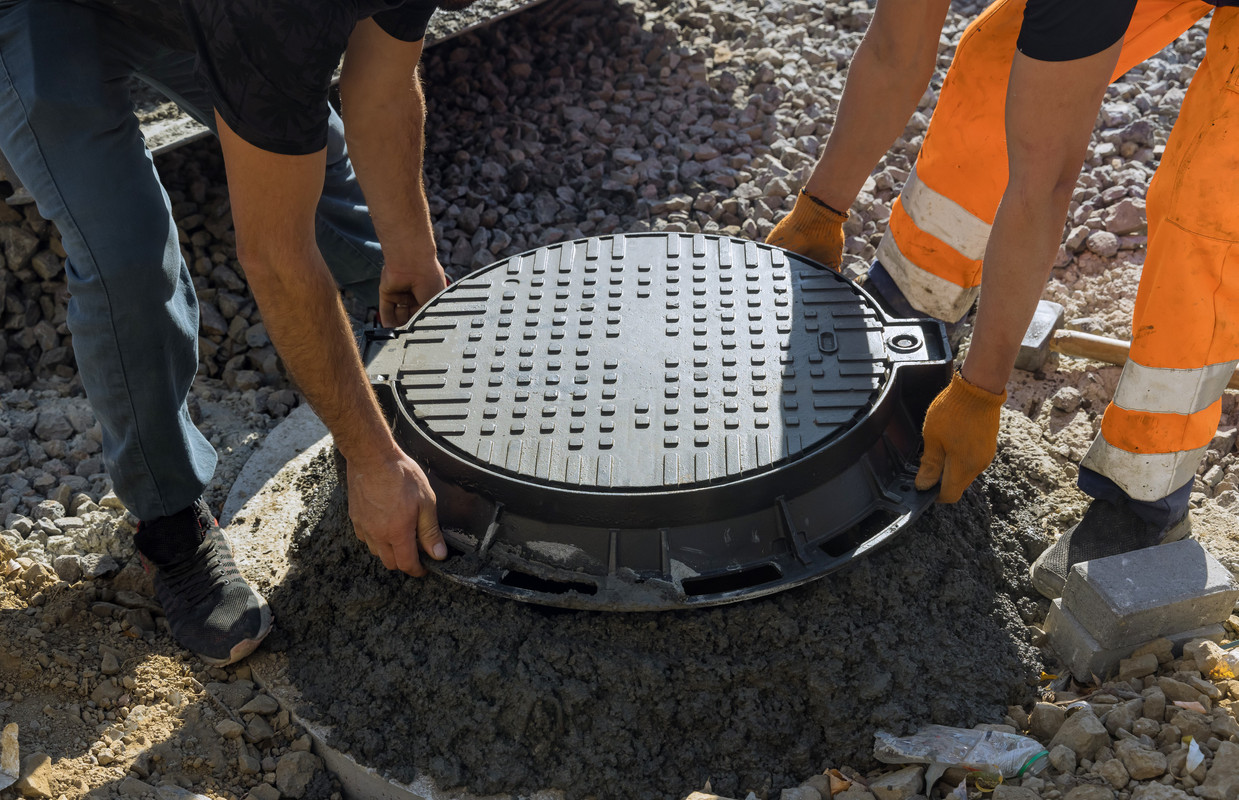Maintaining a Grease Trap in Perth
by siteadmin

Grease traps prevent fats, oils and grease (FOG) from entering wastewater systems. They are legally required for any business that cooks or serves food to have one, with all waste water from kitchen sinks, floor drains and dishwashers flowing into the grease trap.
They work by cooling down greasy water, with heavier foods solids sinking and lighter grease and oil floating to the top. They need to be cleaned on a regular basis.
1. Cleanliness
Grease traps are an essential piece of equipment in any food service business. They prevent fats, oils and grease from entering the sewage waste system by separating it from wastewater and allowing only water to enter. As such, they are required by law for restaurants and other large food services. However, they also need to be cleaned on a regular basis. If not, the fatty build-up can lead to blockages, which can damage and degrade commercial plumbing systems.
Fortunately, professional grease trap cleaning can save you money and avoid costly repairs. The best way to ensure your grease trap is working correctly is to schedule frequent maintenance. This can be done by contacting a professional company in your area that provides regular grease trap cleaning.
In addition to being a health hazard, brown grease trap waste can also be an environmental hazard. It is a toxic material that can leach into waterways and cause serious environmental problems. That is why it’s important to dispose of this material properly by using an approved method for transporting and disposing of oily sewage waste.
If you are unsure about how to dispose of your grease trap, contact your local council or power and water provider. They should be able to provide you with a list of approved grease trap waste contractors. Alternatively, you can contact a liquid waste management company for help.
The most common grease traps are metal, concrete or polyethylene tanks. Each has its own advantages and disadvantages. Metal and concrete traps are more durable but are more difficult to clean out. Polyethylene traps are easier to clean but can deteriorate over time.
Whatever type of grease trap you choose, it’s important to maintain it properly. Regular maintenance and frequent pumping will keep it in good condition and prevent costly blockages. A professional plumber can assess your needs and recommend the best type of trap for your business. They can also install and service your grease trap, making sure it complies with trade waste legislation.
2. Reduced risk of blockage
If you have a restaurant or food business that produces a lot of fat then you need to install a grease trap on your premises. These traps are designed to catch the fatty waste and prevent it from entering the main sewerage system. If you don’t have one of these you could be at risk of a blockage which can be a real nuisance and cost a fortune to clear up. If the build-up gets too high it can also cause back flow into your clean water pipes which is a health hazard and will damage your plumbing and land you with some hefty fines.
A grease trap has a special compartment that cools down the incoming greasy wastewater. This causes the fatty waste to harden and float to the top of the trap while the heavier debris falls to the bottom. As the fatty waste accumulates it becomes increasingly solid, so a pump is used to suck it up out of the trap into a special container for safe disposal.
If the fatty waste is allowed to enter the main sewer system it can cause serious blockages and even contaminate your city’s water supply. The blockages are costly for your business and for the city to clean up and repair. Fatty waste can also clog drains, gutters and stormwater lines. This impacts the city’s infrastructure and causes raw sewage to spill out onto streets, sidewalks, driveways, and parking lots creating a major public health risk.
The Water Corporation requires restaurants and large kitchens to have a grease trap and if they don’t they face stiff penalties. The best way to avoid the risks is to have your grease trap pumped on a regular basis. A professional plumber will use a pump to suck the fatty waste out of the trap and dispose of it properly.
If you want to keep your waste plumbing and grease trap working at its peak performance, contact Septic Tank Armadale. We’ll help you choose the right size Water Corporation approved grease interceptor and provide regular maintenance. Our service includes a six year guarantee and is available 24/7.
3. Reduced odour
The smell of a badly-maintained grease trap can be off-putting to customers and discourage them from returning to your venue. This is especially true if the odour is pervasive and lingers in the kitchen area. This is where a professional grease trap cleaning service can help.
A professional company will know how to deal with odours caused by a dirty grease trap and can clean your drains thoroughly. They will also check for any blockages or issues that might be contributing to the odours. They will provide you with advice and recommendations so that the odours do not recur.
Grease interceptors have a simple design and operate on the principle that fat, oil and grease (FOG) is lighter than water and will float. The trap has an inlet and outlet pipe, with baffles positioned at different levels to catch the FOG as it enters from the sink drainage line. The trap will then contain the FOG and any other solid debris, with clean water escaping from the outlet pipe into the sewerage system.
Getting your grease trap cleaned on a regular basis is essential to ensure it works properly and does not become blocked. If you neglect your trap, it may overflow, creating a health and safety hazard, which could result in a fine from the local council.
Many people try home-tricks to get rid of a bad grease trap smell, but these quick fixes are not always effective. The best solution is to invest in a professional grease trap servicing and maintenance company, like Septic Tank Armadale, that can manage your waste disposal needs. They can arrange scheduled grease trap pump-outs, cleaning and inspections at a time that suits your business.
Commercial food establishments must have a trade waste permit and install and maintain a grease trap to meet strict sewage regulations. These rules are designed to protect the environment and prevent sewage back ups into homes and businesses. If you are considering buying an existing business, it’s important to check whether the business has a grease trap in place and that it is regularly pumped out and cleaned. Unless the grease trap is regularly emptied, it will build up with thick and hardened waste that can cause major plumbing problems.
4. Reduced costs
A grease trap is a plumbing fixture designed to catch fats, oils and food solids. It is used by restaurants and other large kitchens to ensure that these substances do not clog the public sewer system and cause environmental issues. It is also a legal requirement for most businesses in the food service industry.
While a grease trap can be installed on your own, hiring a professional commercial plumber for the job is a much better option. These professionals are accustomed to dealing with various types of grease traps and can provide valuable insights into how the device functions and how it should be cleaned. They can also help you establish a maintenance schedule that works well for your business.
Regular grease trap cleaning is essential to keep the unit functioning properly and avoiding odors. A clogged grease trap can also lead to the build-up of dangerous bacteria in the surrounding area. It can also cause the drain to become blocked, which can result in sewage backups and costly repairs for your business.
If you’re planning to take over a restaurant that already has a grease trap, you should ask the previous business owner to show you their trade waste agreement and proof of compliance with water discharge regulations. If they don’t have a permit, you should consider getting one yourself. This is to avoid any issues with the local council or Water Corporation about your restaurant not complying with the law.
The frequency of grease trap cleaning will vary from business to business, but most should be pumped out when the tank reaches a quarter of its capacity. Getting the tank emptied at the right time will also prevent any odors from forming inside your business.
Brown grease trap waste becomes more toxic over time, so it’s important to get the device emptied regularly. This will minimize the risk of sewage back-ups in your building and surrounding areas, and it will also reduce the amount of money you’ll spend on clean-ups. The good news is that there are many services available to help you with grease trap waste removal and management.
https://www.septictankarmadale.com.au/
Grease traps prevent fats, oils and grease (FOG) from entering wastewater systems. They are legally required for any business that cooks or serves food to have one, with all waste water from kitchen sinks, floor drains and dishwashers flowing into the grease trap. They work by cooling down greasy water, with heavier foods solids sinking…
Recent Posts
- Your Trusted Choice for Premier Plumbing Services in Lexington, KY
- Your Trusted Choice for Premier Plumbing Services in Lexington, KY
- The Premier Ohio Cavapoo Breeder Elevating Puppy Adoption
- The Premier Ohio Cavapoo Breeder Elevating Puppy Adoption
- Ironchess SEO + Marketing Unveils Social Media Pest Control Strategies
